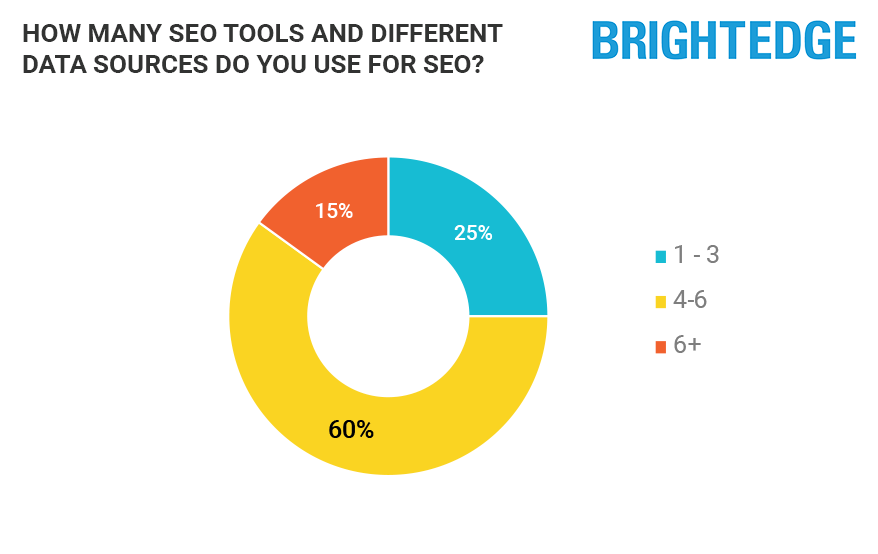
In the practice of SEO, as in life, the only constant is “change.” Even the pace of change in SEO is changing.
It’s accelerating as results grow ever richer and more personalized, search engines more numerous and specialized, and searchers increasingly expect to be able to summon answers whenever, wherever and however they like.
Though it may not always feel like it, none of this happened overnight. If we look at some of the key milestones in the evolution of search, we can get insight into how we got to where we are now. Let’s skip ahead a bit and start with Google in the early 2000s.
- The early 2000s: Google takes on black hat SEO methods by de-legitimizing and even penalizing unethical tactics like keyword stuffing and questionable link-building practices. At the same time, we see the very beginnings of localized search results.
- The mid to late 2000s: Google begins to refine the search experience with universal search, which incorporates results from sources like websites, social media, images, video, and news in its SERPs. Google Suggest launches, which offers related search phrases in the search results. Microsoft launches Bing.
- The early 2010s: Google breaks SEO briefly with algorithm changes that emphasize quality, user-focused content. Any vestigial gaming of the system is dead. Optimization is very much alive, but the gap narrows between content that Google’s algorithm sees as high quality and content that humans see as high quality. Localization gets a boost, and we begin to see zero-click searches.
- The mid-2000s to today: Search explodes. Google begins to demote content that is not mobile-friendly, then rolls out mobile-first indexing. YouTube becomes the second largest search engine behind Google. Amazon ranks first for product searches. We enter the frontier of voice search.
- Today and beyond: SEO has evolved and has proven out as a key business performance driver. Meanwhile, search is ubiquitous, increasingly vertical, and enormously topical.
SEO now
SEO is still very much about maximizing the effectiveness of organic content to drive traffic and demand, but its role in the organization has expanded and so has the workload along with it.
How SEO is used in the modern enterprise
SEO methods and insights are supporting strategy and decision making beyond website content. The broader use of SEO intelligence is a natural progression in the evolution of search. After all, SEO research can reveal a lot about consumer intent. For content, paid search, social media, and email marketers, knowing what the target audience is looking for makes it easier to tailor the message, product or service to them.
A 2018 survey of UK marketers reinforces the perception of SEO as an essential (88% of respondents) and effective (79% of respondents) part of the marketing imperative, but the survey also highlights the difficulty marketers and SEO specialists have when it comes to keeping up with the pace of change in search. More than two-thirds of respondents (70%) incorrectly identified a bogus Google algorithm change as being real. (Source: Zazzle Media)
How SEO is executed in the modern enterprise
For most search marketers, the daily work of SEO is a significant undertaking. Add to that the fact that 75% of marketers are regularly using at least four different tools or data sources to execute their SEO strategy.

SEO in 2019 and beyond: SEO goes single-platform and real-time
To date, SEO has been largely a reactive business function. In 2019, look for search to become not only reactive but predictive. Two shifts will drive this:
- A shift from point solutions to platform SEO
- The enablement of true, real-time SEO
The shift from point solutions to platform SEO
The time-consuming and somewhat disjointed nature of SEO execution for most search marketers is not surprising given the rapid pace of change in search. It is also not sustainable over the long term. Search is only going to evolve more quickly. Keeping up on all the changes, mastering new and additional tools to manage SEO, and finding the time to incorporate more and more diverse data sources into an already overtaxed SEO routine is prohibitive.
To see where the practice of SEO is headed, we can look at how leading brands do it now. BrightEdge Instant (disclosure, customer) empowers the next generation of search marketers to use real-time insights and take action to optimize content all within one unified platform, so they can effectively:
- Speed up the busy work of SEO by
- Streamlining or automating repetitive SEO tasks
- Integrating disparate data sources and adding immense value by, effectively, crowdsourcing otherwise unavailable data
- Turn data into insight by employing AI and deep learning to organize data and generate meaningful recommendations
- Keep up with major and minor changes in search for their users and innovate accordingly
For SEO to be effective it needs to be efficient. Moving from managing multiple SEO point solutions, sourcing data from numerous sources in numerous formats, and analyzing data in Excel to single-platform SEO solution creates efficiency that marketers can no longer ignore.
The enablement of true, real-time SEO
What we know today as real-time SEO is, in actuality, the same, rearward-looking SEO with a shortened timeframe. SEO evolution, like change, is constant and the breakthrough for SEO has begun with live, real-time data that right-now drives keyword and ranking research, and produces in-the-moment recommendations.
Marketers will be able to see trends as they are developing rather than once they’re established. This level of insight will enable them to predictively produce or optimize content to capitalize on the interest that’s coming. This ability to displace competitors pre-emptively will change the face of search forever.
Andy Betts is a chief marketer, consultant, and digital hybrid with more than 20 years of experience in digital, technology and marketing working across London, Europe, New York, and San Francisco. He can be found on twitter @andybetts1.
Related reading
Google Analytics is great, but here’s look at newer, less-discussed tools that can be used for on-site analytics, including Finteza, HotJar, and Text Optimizer.
Around 77% of C-level executives recently reported that business adoption of AI initiatives is a major challenge. For SEO, introducing AI-powered tools could eliminate the mess of spreadsheets and empower more real-time action.
Understand the best metrics for your business when it comes to SEO, view them from a technical and commercial perspective. Lots of screenshots included.





